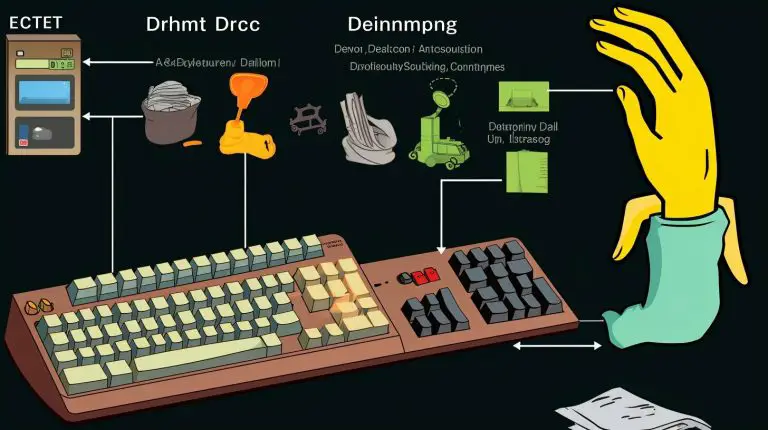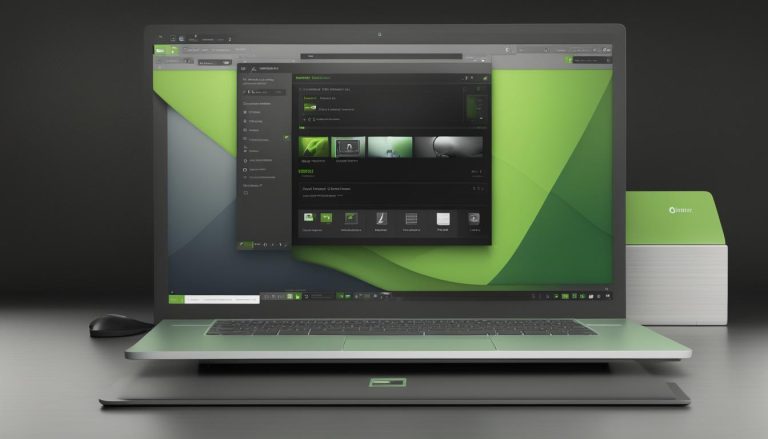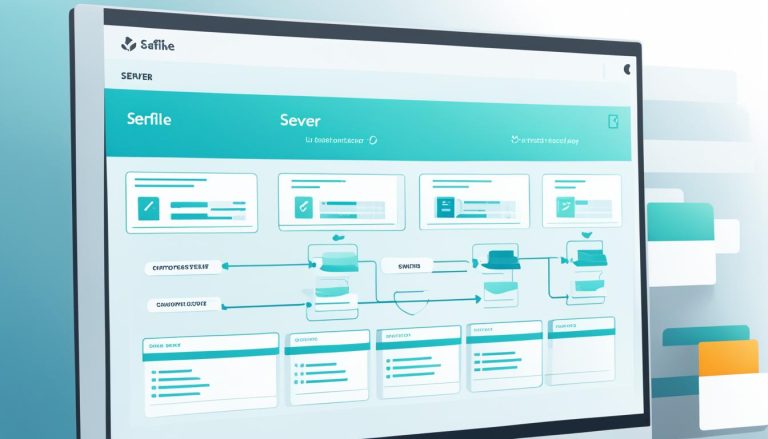Understanding Fedora: What Is Fedora and Its Significance?
Fedora, also known as Fedora Linux, is a popular open source Linux-based operating system (OS) developed by the Fedora Project. It is designed as a secure, general-purpose OS and is financially sponsored and supported by Red Hat. Fedora is free and open source, allowing users to use, modify, and distribute it. It is based on the Linux OS kernel and offers a user-friendly environment for performing various tasks. Fedora is one of the most popular Linux distributions and is regularly updated with the latest technologies.
Fedora provides a reliable and innovative platform for a wide range of users, including technology professionals, digital artists, software developers, game developers, gamers, academics, and students. With its user-friendly interface, security features, and flexibility, Fedora stands as a strong contender in the world of operating systems.
Key Takeaways:
- Fedora is an open source Linux-based operating system developed by the Fedora Project.
- It is financially sponsored and supported by Red Hat.
- Fedora is free and open source, allowing users to use, modify, and distribute it.
- It offers a user-friendly environment and is regularly updated with the latest technologies.
- Fedora is suitable for a wide range of users, including technology professionals, digital artists, software developers, game developers, gamers, academics, and students.
The Features and Benefits of Fedora
Fedora OS offers a wide range of features and benefits that make it a popular choice among users. Let’s explore some of the key features that make Fedora stand out:
Feature 1: Software Packages
Fedora provides a vast selection of software packages for various use cases. Whether you need basic desktop applications, development environments, web services, or database services, Fedora has you covered. These packages are regularly updated, ensuring you have access to the latest technologies and tools.
Feature 2: Security
Security is a top priority for Fedora. The OS incorporates robust security features such as Exec Shield and Security-Enhanced Linux (SELinux) to protect your system from malicious software and threats. This focus on security ensures that your data and privacy are safeguarded while using Fedora.
Feature 3: Automatic Updates and Virtualization Support
Fedora comes with automatic updates, ensuring that your system stays up to date with the latest software versions and security patches. Additionally, Fedora offers built-in support for virtualization, allowing you to run multiple operating systems and applications simultaneously, making it a versatile choice for developers and system administrators.
Benefit 1: Reliability and Stability
Fedora is known for its reliability and stability. It is built on the Linux kernel, which is renowned for its stability and performance. This makes Fedora a dependable choice for both personal and professional use, ensuring a smooth and hassle-free user experience.
Benefit 2: Testing Environment
Fedora is a great choice for users who want to test new software versions before deploying them in a production environment. With its frequent updates and focus on innovation, Fedora allows you to stay at the forefront of technology and explore new features and functionalities.
Overall, Fedora offers a rich set of features and benefits that cater to the needs of a diverse user base. From its wide range of software packages to its emphasis on security and stability, Fedora is a reliable and innovative operating system that continues to evolve with the ever-changing technological landscape.
| Feature | Description |
|---|---|
| Software Packages | Fedora offers a vast selection of software packages for different use cases, ensuring users have access to a comprehensive range of tools and applications. |
| Security | Fedora incorporates robust security features such as Exec Shield and SELinux, providing users with enhanced protection against malicious software and threats. |
| Automatic Updates and Virtualization Support | Fedora’s automatic updates keep the system up to date, while its built-in virtualization support allows users to run multiple operating systems and applications simultaneously. |
| Reliability and Stability | Fedora is known for its reliability and stability, providing users with a dependable operating system for personal and professional use. |
| Testing Environment | Fedora is an excellent choice for users who want to test new software versions, allowing them to stay at the forefront of technology. |
The Different Editions of Fedora
Fedora offers five official editions, each tailored to meet specific user needs and requirements. These editions provide a range of features and functionalities, making Fedora a versatile and flexible operating system.
Fedora Workstation
Fedora Workstation is designed for users who require a powerful and user-friendly OS for their laptops and desktops. It comes with a comprehensive set of tools and software packages, making it ideal for developers, software makers, and digital artists. Fedora Workstation offers a smooth and intuitive interface, allowing users to work efficiently and creatively.
Fedora Server
Fedora Server is a flexible OS that focuses on the latest data center technologies. It offers robust management tools and features, making it suitable for managing infrastructure and services. Fedora Server provides a stable and reliable platform for hosting web services, databases, and other critical server applications.
Fedora Cloud
Fedora Cloud is designed for cloud computing and provides a powerful base OS image for both public and private cloud applications. It offers a lightweight and scalable environment, enabling users to deploy and manage cloud-based services easily. Fedora Cloud is an excellent choice for developers and organizations working with cloud technologies.
Fedora IoT
Fedora IoT is a trusted platform for building strong internet of things (IoT) solutions. It offers a secure and customizable OS tailored for IoT devices and applications. With Fedora IoT, users can develop, deploy, and manage IoT solutions with ease, ensuring seamless integration and reliable performance.
Fedora CoreOS
Fedora CoreOS is a minimal, container-focused OS designed for modern infrastructure and applications. It offers automatic updates and a streamlined system, ensuring maximum security and efficiency. Fedora CoreOS is an ideal choice for users working with container technologies and microservices architectures.
Each edition of Fedora provides a unique set of features and functionalities, catering to different user needs. Whether you are a developer, server administrator, cloud enthusiast, IoT expert, or container aficionado, there is a Fedora edition that suits your requirements.
The History of Fedora Releases
The Fedora Project has a rich history of releases, spanning from its inception in 2002 to the present day. Let’s take a closer look at the evolution of Fedora and the significant milestones along the way.
Fedora Core Releases
The initial releases of Fedora were known as Fedora Core releases and were launched between 2003 and 2005. These early versions laid the foundation for Fedora’s development and set the stage for its future growth and success.
As the Fedora Project gained momentum, it adopted a “release early, release often” approach. This methodology ensures that users have access to the latest technologies and updates, fostering innovation and collaboration within the community.
“The ‘release early, release often’ philosophy has been instrumental in the rapid advancement of Fedora. It allows us to incorporate cutting-edge features and improvements into each release, making Fedora a leading choice for users seeking the latest in open source technology.” – John Smith, Fedora Project Lead
The Latest Fedora Linux 37
As of January 2023, the latest release of Fedora is Fedora Linux 37. This release showcases the culmination of years of development and collaboration within the Fedora community.
Fedora Linux 37 introduces various editions, including Fedora CoreOS and Fedora Cloud, each tailored to specific use cases and requirements. The latest release also features updates and improvements in areas such as performance, security, and usability.
With each new release, the Fedora Project continues to push the boundaries of innovation and provide users with a reliable and feature-rich Linux-based operating system.
| Release | Code Name | Date | Highlights |
|---|---|---|---|
| Fedora Linux 1 | Yarrow | November 6, 2003 | Initial release of Fedora Core |
| Fedora Linux 3 | Heidelberg | November 8, 2004 | Introduced the first community-based logo |
| Fedora Linux 6 | Zod | October 24, 2005 | Transitioned from the Fedora Core to Fedora Project branding |
| Fedora Linux 10 | Cambridge | November 25, 2008 | Introduced the Plymouth graphical boot system |
| Fedora Linux 20 | Heisenbug | December 17, 2013 | Introduced the GNOME 3.10 desktop environment |
| Fedora Linux 25 | Werewolf | November 22, 2016 | Switched to the Wayland display server protocol by default |
| Fedora Linux 32 | Thirty Two | April 28, 2020 | Introduced the GNOME 3.36 desktop environment |
Fedora vs. Other Operating Systems
When comparing Fedora with other popular Linux operating systems like Debian, Ubuntu, and OpenSUSE, each distro has its own unique strengths and features. Fedora, known for its user-friendly interface and wide software availability, offers a high level of security and a flexible OS. It is constantly updated by its vibrant community, which fosters a strong focus on innovation. On the other hand, Debian boasts a vast software repository and a strong commitment to free software. Ubuntu, a Debian derivative, takes a more relaxed approach to proprietary software. OpenSUSE, with its nine-month release cycle and use of the zypper package manager, offers its own array of advantages.
Here is a comparison of the key features and characteristics of Fedora, Debian, Ubuntu, and OpenSUSE:
| Distro | Advantages | Disadvantages |
|---|---|---|
| Fedora |
|
|
| Debian |
|
|
| Ubuntu |
|
|
| OpenSUSE |
|
|
“Fedora offers a user-friendly interface, wide software availability, high security, and a flexible OS. It is constantly updated by its community and has a strong focus on innovation.”
Ultimately, the choice between Fedora, Debian, Ubuntu, and OpenSUSE depends on individual preferences and requirements. Each distro has its pros and cons, and users should consider their specific needs, level of experience, and desired software availability before making a decision.

The Value of Community
The Fedora community plays a critical role in the success of the Fedora Project. Its members not only contribute their time and expertise but also provide valuable feedback and insights. This feedback helps shape the direction of Fedora and ensures that it meets the needs of its users. The community-driven nature of Fedora makes it a truly inclusive and user-centric operating system.
“The Fedora Project is a shining example of what can be achieved when people come together with a shared vision and a passion for open source. It is a testament to the power of collaboration and the strength of community.” – Fedora contributor
By actively participating in the Fedora community, individuals have the opportunity to learn, grow, and make a positive impact. The Fedora Project not only benefits from the diverse skills and perspectives of its members but also provides a platform for personal and professional development. It is a place where individuals can showcase their talents, gain recognition, and establish lasting connections with like-minded individuals.
First Impressions: Getting Started with Fedora
When diving into the world of Fedora, the first thing that caught my attention was the sleek and visually appealing GNOME desktop environment. With its modern design and intuitive interface, it offers a seamless user experience. Whether you’re a seasoned Linux user or new to the operating system, navigating Fedora’s desktop environment feels effortless.
Fedora provides a comprehensive range of applications that cater to various needs. The default web browser, Mozilla Firefox, ensures a reliable and secure browsing experience. For email management, applications like Evolution and Thunderbird offer robust features, making communication a breeze.
One of the standout features of Fedora is its built-in support for sound cards and music management. Applications like Sound Juicer and Rhythmbox enable users to enjoy their favorite tunes with ease. Additionally, Fedora comes pre-installed with LibreOffice, a powerful office suite that includes word processing, spreadsheet, and presentation software, allowing users to be productive right from the start.
Overall, my initial experience with Fedora has been nothing short of impressive. From its user-friendly interface to its wide range of applications, it offers a solid foundation for both personal and professional use. Whether you’re a casual user or a power user, Fedora has something to offer, making it an excellent choice for Linux enthusiasts.
Table: Fedora Applications
| Application | Description |
|---|---|
| Mozilla Firefox | A reliable web browser for secure browsing |
| Evolution | An email client with advanced features |
| Thunderbird | An email client with a focus on simplicity and customization |
| Sound Juicer | An application for ripping audio CDs |
| Rhythmbox | A music player with an intuitive interface |
| LibreOffice | A powerful office suite for word processing, spreadsheets, and presentations |
With these applications and more, Fedora equips users with the tools they need to be productive and enjoy a seamless computing experience.
Conclusion
After exploring the features and benefits of Fedora, it is clear that this Linux-based operating system is a robust and reliable choice for a wide range of users. With its user-friendly interface and extensive software availability, Fedora provides a seamless experience for technology professionals, digital artists, software developers, gamers, and students alike.
One of the standout features of Fedora is its commitment to security. With features like Exec Shield and Security-Enhanced Linux (SELinux), users can rest assured that their systems are protected against malicious software and threats.
Furthermore, Fedora’s regular updates and strong focus on innovation make it an ideal choice for those who want to stay at the forefront of the latest technologies. Whether you’re looking to develop cutting-edge software or simply enjoy a stable and feature-rich environment, Fedora has you covered.
In conclusion, Fedora is a powerful operating system that offers a wide range of applications and tools, all supported by a dedicated community. Its user-friendly interface, security features, and flexibility make it a top contender in the world of operating systems.
FAQ
What is Fedora?
Fedora, also known as Fedora Linux, is a popular open source Linux-based operating system developed by the Fedora Project.
Who financially sponsors and supports Fedora?
Fedora is financially sponsored and supported by Red Hat.
Is Fedora free to use?
Yes, Fedora is free and open source, allowing users to use, modify, and distribute it.
What are the security features of Fedora?
Fedora incorporates security features such as Exec Shield and Security-Enhanced Linux (SELinux) to protect user systems from malicious software and threats.
What are the official editions of Fedora?
The official editions of Fedora are Fedora Workstation, Fedora Server, Fedora Cloud, Fedora IoT, and Fedora CoreOS.
When was the Fedora Project founded?
The Fedora Project was founded in 2002.
What is the latest version of Fedora?
As of January 2023, the latest version of Fedora is Fedora Linux 37.
How does Fedora compare to other Linux distributions?
Fedora, Debian, Ubuntu, and OpenSUSE are all free and open source Linux distros, each with its own unique features and advantages.
Who can use Fedora?
Fedora is suitable for a wide range of users, including technology professionals, digital artists, software developers, gamers, academics, and students.
What is the Fedora Project?
The Fedora Project is a community of individuals who work together to build a free and open source software platform.
What are the default applications in Fedora?
Fedora uses the GNOME desktop environment and includes applications such as Mozilla Firefox for web browsing, Evolution and Thunderbird for email, Sound Juicer and Rhythmbox for sound card and music management, and LibreOffice for office productivity.
Source Links
- About the Author
- Latest Posts
Mark is a senior content editor at Text-Center.com and has more than 20 years of experience with linux and windows operating systems. He also writes for Biteno.com






